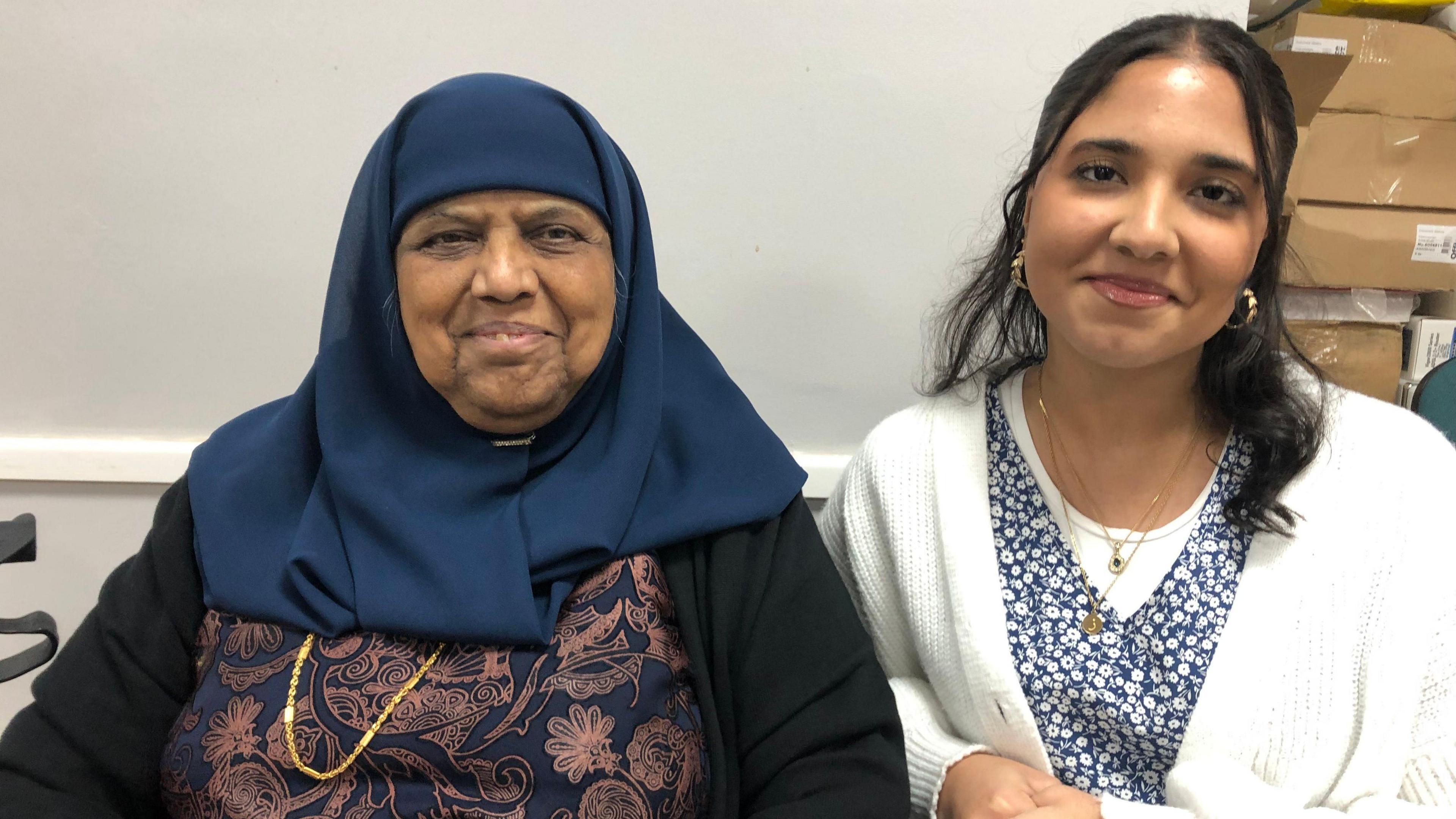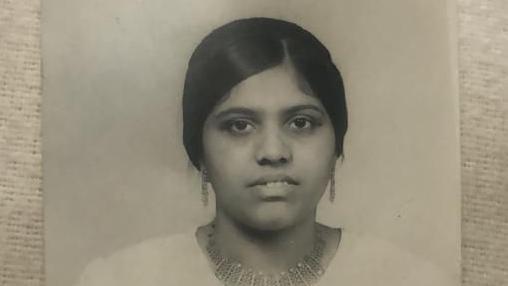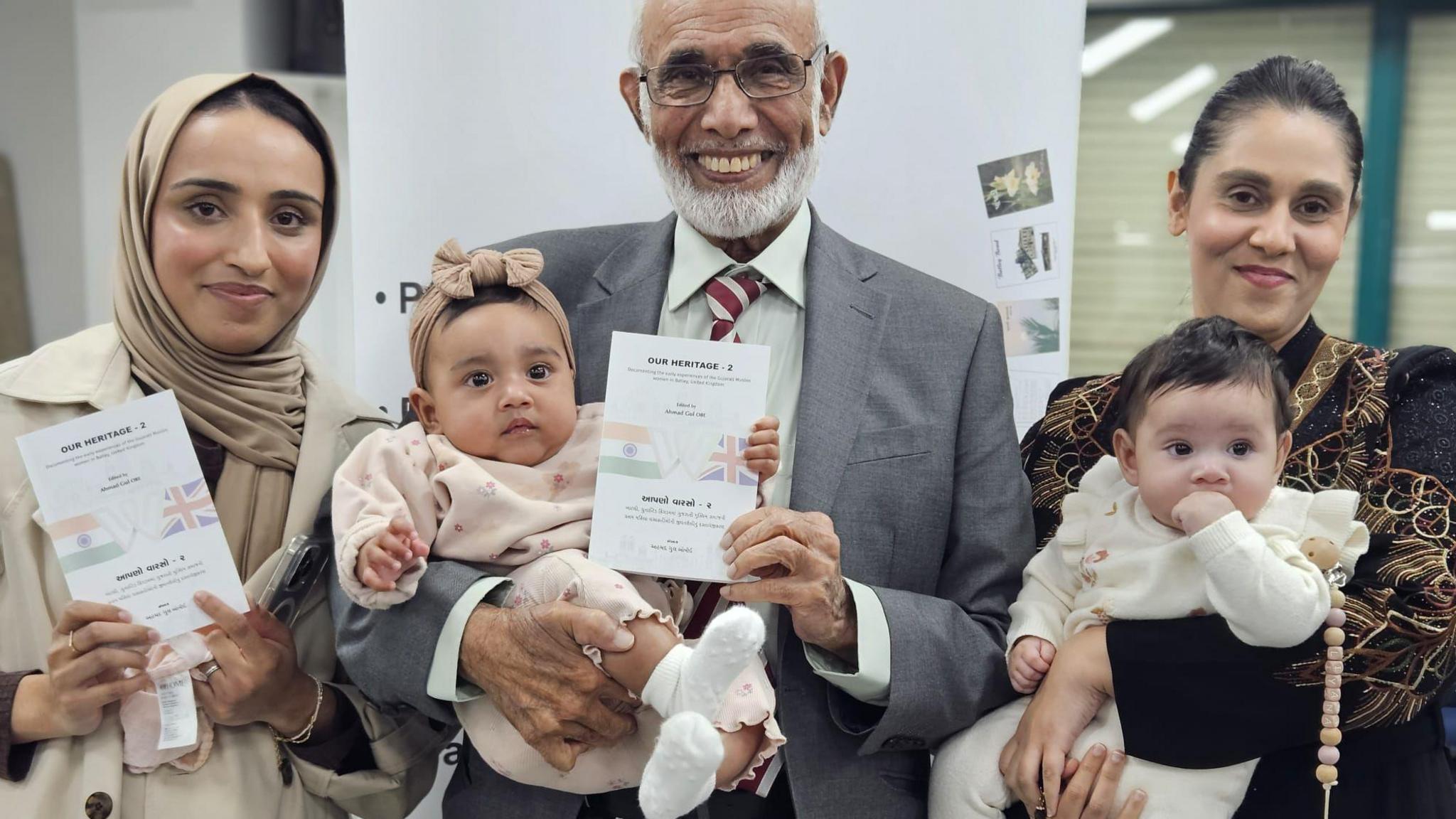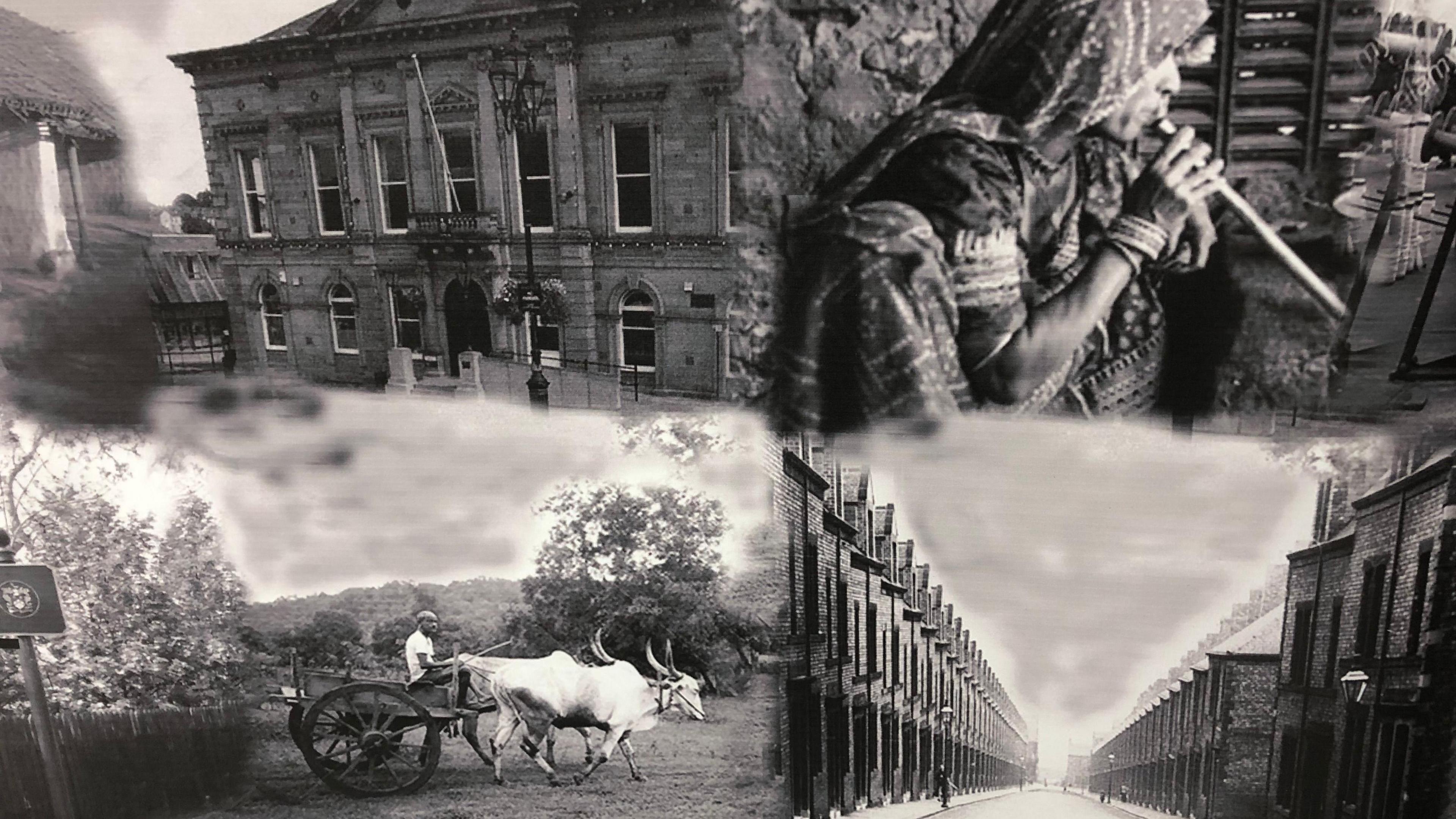Book honours courage of Batley's immigrant women

Sabera Laher, 71, is one of many Batley women whose stories are captured in a new book
- Published
In the 1960s, thousands of families left South Asia seeking work in the mills and factories of West Yorkshire to help with Britain’s post-war rebuild. Stories about the graft of the husbands and the fathers are often documented, but the tales of the early female settlers and their sacrifices are less so.
"I pray for the safety and protection of this country," says Sabera Laher-Laal, "it has been very good to immigrants of that era."
Sabera, now 71, arrived in the UK in 1966, aged just 13, one of the first wave of women and girls who came to join their husbands and fathers making a new life.
Her story is featured in a new book, Our Heritage 2, a collection of first-person accounts by the early female settlers of a Gujarati Indian Muslim background, who made Batley their home. It details some harsh realities - but is also a love-letter to their adopted homeland.

Sabera Laher-Laal, pictured shortly after arriving in the UK for the first time in the 1960s as a young girl
In her chapter, Sabera recalls the "strange feeling" when she left her village in Gujarat with her mother and siblings, and stepped out of the plane to "a totally different atmosphere."
"I really enjoyed the beautiful scenery and landscape," she recalls. "My thoughts strayed momentarily back to India, thinking I was thousands of miles away from my village, from my school and friends, and whether I would ever be able to visit them."
She remembers experiencing the biting Yorkshire cold for the first time and watching her father teach her mother how to light a coal fire.
She also recalls her tough experiences at school, being taken to another school to learn English, overcoming racist bullying, but also the love and support of her welcoming white British neighbours.
Sabera says she enjoyed sharing her story for the book, which has been put together by writer, poet, and historian Ahmed Lunat.
"When I first came here, I was just happy to see my dad and for my family to be together," Sabera recalls. "But I love this country, and I love the people.
"Our next generations are growing up here. They are successful, some doctors and lawyers, dentists, teachers, engineers, and I want to congratulate them. But I am also proud that our generation helped lay the foundation for that - the children should know that.
"That's why I was happy to be part of this, although I was nervous. I like seeing my story written down. In the future, the next generation will be able to read our stories and learn of the sacrifices we made."

Ahmed Lunat with granddaughters Aisha and Sameeha, and baby great-granddaughters Safaa and Liyana
The women's stories were read out by younger family members at a launch event in Batley on Friday.
Sabera's granddaughter Zahra, 17, said she often sat down with her grandmother or Aprimum to hear about her life, but enjoyed seeing it written down properly.
"She was a lot younger than I am now when she came here. I can't imagine moving countries, all that way at 13 years old, away from my friends and life.
"I am very proud of my Grandma - and now she is a published writer!"

The book captures the women's journeys from their remote villages in India to the terraces of West Yorkshire
The book was a three-year labour of love for Mr Lunat, 89, who previously published Our Heritage 1, chronicling the stories of pioneering men and boys from the community.
With the oldest contributor now 99, he said it was a challenge, but very much worth it.
"Generally we hear and read about the men who were working hard in the factories at the time, but in my research I found the women at home were working even harder!
"And we can't ignore their sacrifices.
"They were far from their families in a new country. They struggled not just with making a life here but with other challenges.
"Imagine a husband working a night shift, and you have no English, no telephone, no car, you would be worried.
"Some of the ladies talk in the book about how neighbour families helped them, like when they were struggling in the market or when they forgot their way home."
He hopes his book will help different communities to understand each other better, especially at a time when fresh, divisive debates about immigration seem to be dominating public discourse.
"Every immigrant community's story is slightly different," he said.
"I think there are still challenges. It's human nature.
"But these are stories of survival and hope.
"The women I spoke to mostly tell me they love this country. This is their country."
Listen to highlights from West Yorkshire on BBC Sounds, catch up with the latest episode of Look North or tell us a story you think we should be covering here, external.